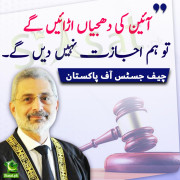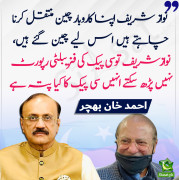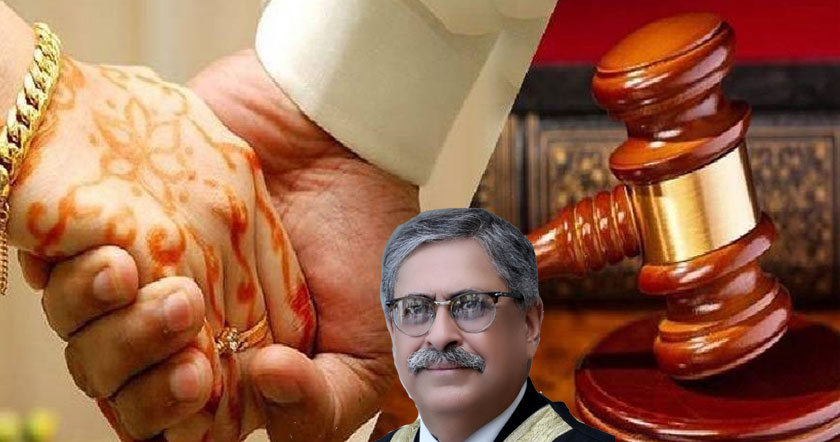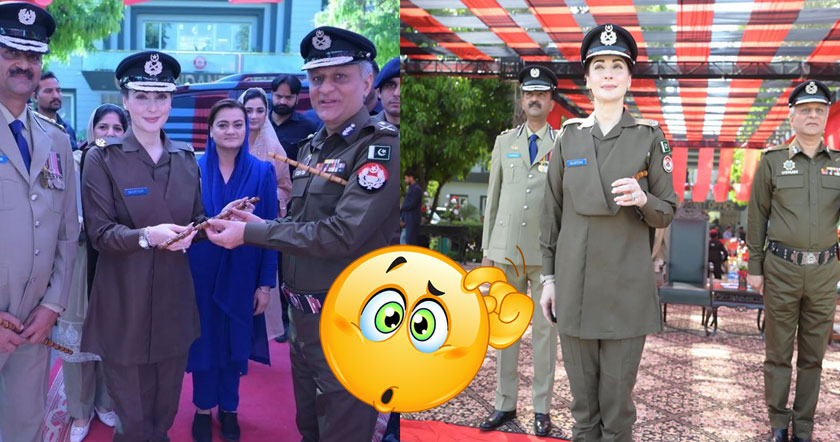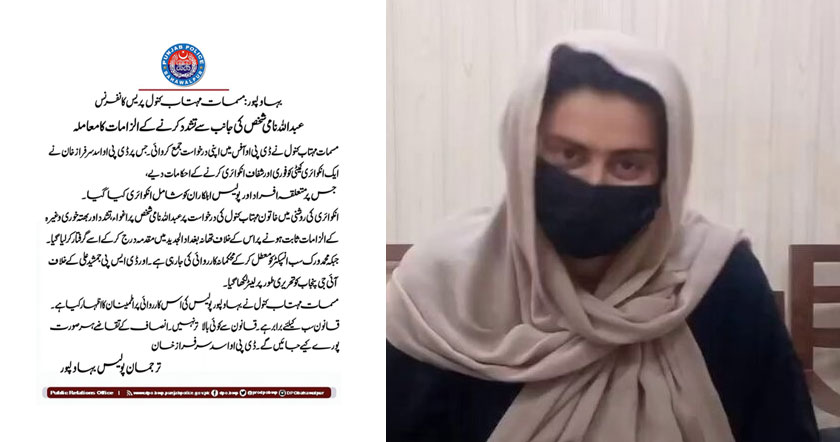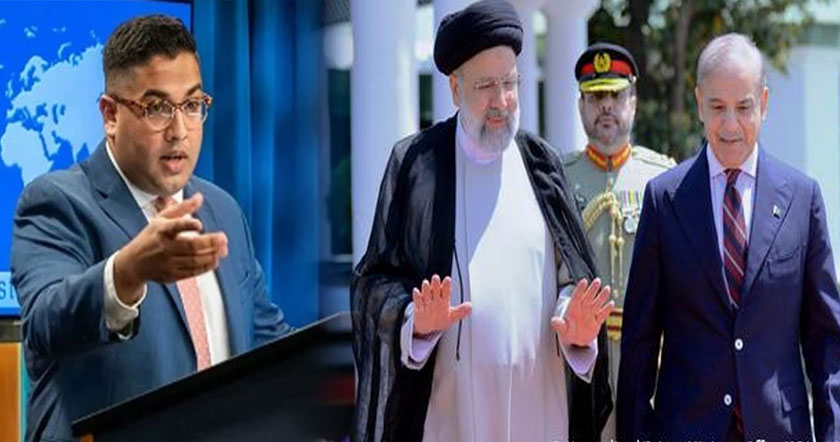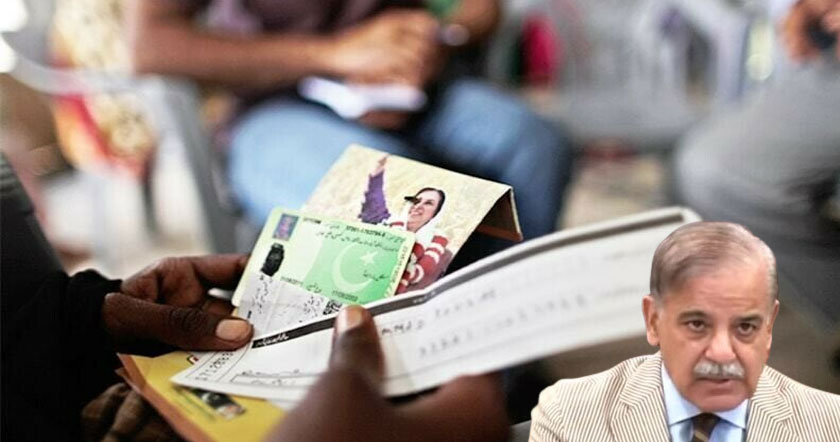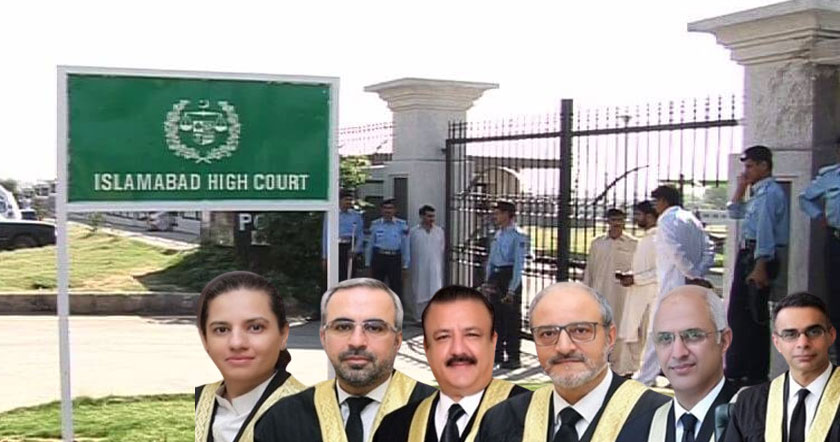It is often assumed that Sufism stands opposed to Wahhabism. Wrong. Sufism and Wahhabism, in fact, share a fatal characteristic they are religions of the status quo. In Pakistan, Sufism legitimises barbarities of inequality and starvation do nothing, its gods will - while at the same time justifying structures of oppressive power, Pirism and landlordism, rather like Wahhabism in Saudi Arabia. Contemporary Sufism, rather than being a solution to Pakistans problems, is the cause.
I was sitting at the shrine of Shah Kamal in Lahore, with the dhol beats and whirling dervishes dancing to connect to the centre of the universe in themselves, when a friend turned and pointed to an old German fellow sitting a few meters from us. He just delivered a lecture on Sufism. He is an expert on the subject, and talked about how its a religion of peace and love.
I replied curtly: Have you ever been in love? Have you had your heart broken? What peace is there in that state? What peace was there when Mansur had his head chopped off on the orders of the Baghdadi Emperor? What peace was there when Shah Inayat was fighting against the Mughal emperor for his life and that of his commune? What peace is there in Sassuis peeling feet as she searches for her beloved through the desert of Sindh?
My friend agreed and said: But they pay me I have to go along with them.
Western and Pakistani policymakers think Islam can be codified as either a religion of peace and love and given the brand of Sufism, or as a religion of violent jihad. They think its better, at this point in time, to promote the peaceful religion of Sufism.
Note how the word Islam is taken out Sufism is codified as not really Islam. Thus Sufism is considered a perfect native antidote to the violent religion of Islam.
Why are dollars, pounds, rupees and Euros going to promote Sufism? What is it about todays Sufism that allows it to serve a purpose for the American empire, and what function does it play locally in Pakistan?
The answer was hard for me to stomach. I had spent much time researching aspects of Sufism, and I thought Id found a touchstone from which to articulate a spirituality that was socially radical and politically challenging to Pakistans parasitic elite and the US/Nato invaders. Ziauddin Sardar, polymath writer and scholar of Islam, forced me to face the facts.
He called Sufism docile, acting as an opiate for the masses, with most Pirs/Syeds/Sufis amounting to nothing short of confidence tricksters. And indeed, Sufism is docile. A shopkeeper in Main Market, Gulberg, had an emblem of the Sufi saint Lal Qalandar hanging in his shop, which he had got from Sehraw Sharif, Sindh, the town where the saint is buried. He said that what these people do not realise is that 80 per cent of what we pray at the shrine [of Lal Qalandar] comes true. A popular song sung across the Punjab at Sufi shrines tells women that if they light a lantern at the shrine of saints, their desire for a son will be answered.
Items given by holy Pirs - threads, rings, blessings, and even sexual induction before marriage (in the case of a notorious Sindhi landlord/Pir) - are taken as altering the universe and leading to the granting of prayers of health, wealth, and other worthy claims by this mass of the wretched that is the Pakistani citizen. It is not only candles and lanterns that are lit at the shrines; money is exchanged and power is sustained. It is this power that has created a docile Sufism.
Pakistan is a vastly unequal society. Government figures put those below the poverty line at close to 40 per cent of the population, though the true figure may be closer to 50 per cent. Inequity is the hallmark of the Sindh province of Pakistan, which is celebrated as the land of the Sufis and is where Sufis and Pirs hold power. A recent World Bank report noted that Sindh has the narrowest distribution of land ownership, with the richest one per cent of farmers owning 150 per cent more land than the bottom 62 per cent of farmers put together. Feudal landlords in vast parts of Sindh have holdings of thousands of acres, and most of them are Syeds or Pirs. These lands were sometimes acquired during the Mughal era but were largely consolidated during the British colonial rule in India. The British, looking for local collaborators, found Sufi Pirs willing to oblige.
Sarah Ansari, in her book, Sufi Saints and State Power: The Pirs of Sind, 1843-1947, notes: the Sindhi Pirs participated in the British system of control in order to protect their privileges and to extend them further whenever and wherever possible.
Todays feudalists are keen to protect and promote docile Sufism to sustain their wealth and power this time with US help.
Wealth is created by a pool of landless serfs who toil thousands of acres for their spiritual masters, while seeing their own children starve. These serfs create the wealth that sends the Bhuttos and the Gilanis to universities such as Oxford and Harvard, while their children get blessings and threads of Pirs. This stream of inequity from generation to generation is based on a lame theological idea, which nonetheless has been promoted by the Mughal Empire, the British Empire, the landlords themselves, and now by the American Empire, and thanks to such patronage has gained far more ground than the Taliban. It states that the Prophet was given divine light/knowledge, which passes on to his descendents. These descendents append the honorific title of Syed [literally, master], and claim divine and material privileges.
Pirs justify their superiority on a similar argument they were given the light, and this light continues to radiate in their descendants. At a recital of the poetry of the radical Sufi Waris Shah held each year in Lahore, the descendents of Iman Bari Sarkar (a Pir) enter the arena to be received with awe and sought for blessings by the crowd. The recital stops and they are escorted to the front and seated. All eyes are on these holy men who are not only descendents of a Pir but also Syeds thus, doubly blessed with light! And then they begin expounding their ideology: We the Syeds get different treatment from God Almighty, for our good deeds we get double the reward compared to murids [non-Syeds] who only get single reward for a single good deed but, its not easy to be a Syed [he laughs] we have to suffer double the punishment for our any wrong deeds whereas you [non-Syeds] get only single punishment for a single wrong deed!
There you have it! Our holy man explains why he has a Land Cruiser jeep and non-Syeds have donkey carts. He explains why most Pakistanis are living in poverty while he and his Syeds and Pirs are lapping it up in luxury.
Contemporary Sufism is the ideology of Sindhs landlords. It is the ideology that is used to uphold their wealth and despotism, and keeps millions in serfdom. A similar pattern is repeated throughout Pakistan. Given the lack of proportional representation and the vast inequality in power in each district between Pirs and the rest, it is almost always the case that elections flood parliament with Pirs/Syeds/landlords. The current Pakistani Prime Minister (Syed Yousaf Raza Gilani) and Foreign Minister (Makhdoom Shah Mehmood Qureshi) are examples. Both have the claim of being descended from Holy Pirs as the basis of their wealth and distinction. As a result, we cannot expect parliament to challenge inequity and injustice in Pakistan.
Parliamentarians know that lack of education, coupled with the obscurantism of contemporary Sufism, sustains their power. Like the British before them, the Americans dont care about Pakistans growing multitude of serfs and the underclass, they dont care whether the Prime Minister and the Foreign Minister of Pakistan are deeply rooted in the cause of inequity and injustice in the country and part of the promotion of a system of starvation a Sufism that tells people to take a blessing instead of demanding food, education, justice and liberty. Like the British, they will fund whoever furthers their interests. We, however, must care.
This is an article by Qalandar Bux Memon, editor of Naked Punch, from the The Samosa, a new UK-based politics, culture and arts journal, campaigning blog and website.
DAWN.COM | Pakistan | The bad Sufi
I was sitting at the shrine of Shah Kamal in Lahore, with the dhol beats and whirling dervishes dancing to connect to the centre of the universe in themselves, when a friend turned and pointed to an old German fellow sitting a few meters from us. He just delivered a lecture on Sufism. He is an expert on the subject, and talked about how its a religion of peace and love.
I replied curtly: Have you ever been in love? Have you had your heart broken? What peace is there in that state? What peace was there when Mansur had his head chopped off on the orders of the Baghdadi Emperor? What peace was there when Shah Inayat was fighting against the Mughal emperor for his life and that of his commune? What peace is there in Sassuis peeling feet as she searches for her beloved through the desert of Sindh?
My friend agreed and said: But they pay me I have to go along with them.
Western and Pakistani policymakers think Islam can be codified as either a religion of peace and love and given the brand of Sufism, or as a religion of violent jihad. They think its better, at this point in time, to promote the peaceful religion of Sufism.
Note how the word Islam is taken out Sufism is codified as not really Islam. Thus Sufism is considered a perfect native antidote to the violent religion of Islam.
Why are dollars, pounds, rupees and Euros going to promote Sufism? What is it about todays Sufism that allows it to serve a purpose for the American empire, and what function does it play locally in Pakistan?
The answer was hard for me to stomach. I had spent much time researching aspects of Sufism, and I thought Id found a touchstone from which to articulate a spirituality that was socially radical and politically challenging to Pakistans parasitic elite and the US/Nato invaders. Ziauddin Sardar, polymath writer and scholar of Islam, forced me to face the facts.
He called Sufism docile, acting as an opiate for the masses, with most Pirs/Syeds/Sufis amounting to nothing short of confidence tricksters. And indeed, Sufism is docile. A shopkeeper in Main Market, Gulberg, had an emblem of the Sufi saint Lal Qalandar hanging in his shop, which he had got from Sehraw Sharif, Sindh, the town where the saint is buried. He said that what these people do not realise is that 80 per cent of what we pray at the shrine [of Lal Qalandar] comes true. A popular song sung across the Punjab at Sufi shrines tells women that if they light a lantern at the shrine of saints, their desire for a son will be answered.
Items given by holy Pirs - threads, rings, blessings, and even sexual induction before marriage (in the case of a notorious Sindhi landlord/Pir) - are taken as altering the universe and leading to the granting of prayers of health, wealth, and other worthy claims by this mass of the wretched that is the Pakistani citizen. It is not only candles and lanterns that are lit at the shrines; money is exchanged and power is sustained. It is this power that has created a docile Sufism.
Pakistan is a vastly unequal society. Government figures put those below the poverty line at close to 40 per cent of the population, though the true figure may be closer to 50 per cent. Inequity is the hallmark of the Sindh province of Pakistan, which is celebrated as the land of the Sufis and is where Sufis and Pirs hold power. A recent World Bank report noted that Sindh has the narrowest distribution of land ownership, with the richest one per cent of farmers owning 150 per cent more land than the bottom 62 per cent of farmers put together. Feudal landlords in vast parts of Sindh have holdings of thousands of acres, and most of them are Syeds or Pirs. These lands were sometimes acquired during the Mughal era but were largely consolidated during the British colonial rule in India. The British, looking for local collaborators, found Sufi Pirs willing to oblige.
Sarah Ansari, in her book, Sufi Saints and State Power: The Pirs of Sind, 1843-1947, notes: the Sindhi Pirs participated in the British system of control in order to protect their privileges and to extend them further whenever and wherever possible.
Todays feudalists are keen to protect and promote docile Sufism to sustain their wealth and power this time with US help.
Wealth is created by a pool of landless serfs who toil thousands of acres for their spiritual masters, while seeing their own children starve. These serfs create the wealth that sends the Bhuttos and the Gilanis to universities such as Oxford and Harvard, while their children get blessings and threads of Pirs. This stream of inequity from generation to generation is based on a lame theological idea, which nonetheless has been promoted by the Mughal Empire, the British Empire, the landlords themselves, and now by the American Empire, and thanks to such patronage has gained far more ground than the Taliban. It states that the Prophet was given divine light/knowledge, which passes on to his descendents. These descendents append the honorific title of Syed [literally, master], and claim divine and material privileges.
Pirs justify their superiority on a similar argument they were given the light, and this light continues to radiate in their descendants. At a recital of the poetry of the radical Sufi Waris Shah held each year in Lahore, the descendents of Iman Bari Sarkar (a Pir) enter the arena to be received with awe and sought for blessings by the crowd. The recital stops and they are escorted to the front and seated. All eyes are on these holy men who are not only descendents of a Pir but also Syeds thus, doubly blessed with light! And then they begin expounding their ideology: We the Syeds get different treatment from God Almighty, for our good deeds we get double the reward compared to murids [non-Syeds] who only get single reward for a single good deed but, its not easy to be a Syed [he laughs] we have to suffer double the punishment for our any wrong deeds whereas you [non-Syeds] get only single punishment for a single wrong deed!
There you have it! Our holy man explains why he has a Land Cruiser jeep and non-Syeds have donkey carts. He explains why most Pakistanis are living in poverty while he and his Syeds and Pirs are lapping it up in luxury.
Contemporary Sufism is the ideology of Sindhs landlords. It is the ideology that is used to uphold their wealth and despotism, and keeps millions in serfdom. A similar pattern is repeated throughout Pakistan. Given the lack of proportional representation and the vast inequality in power in each district between Pirs and the rest, it is almost always the case that elections flood parliament with Pirs/Syeds/landlords. The current Pakistani Prime Minister (Syed Yousaf Raza Gilani) and Foreign Minister (Makhdoom Shah Mehmood Qureshi) are examples. Both have the claim of being descended from Holy Pirs as the basis of their wealth and distinction. As a result, we cannot expect parliament to challenge inequity and injustice in Pakistan.
Parliamentarians know that lack of education, coupled with the obscurantism of contemporary Sufism, sustains their power. Like the British before them, the Americans dont care about Pakistans growing multitude of serfs and the underclass, they dont care whether the Prime Minister and the Foreign Minister of Pakistan are deeply rooted in the cause of inequity and injustice in the country and part of the promotion of a system of starvation a Sufism that tells people to take a blessing instead of demanding food, education, justice and liberty. Like the British, they will fund whoever furthers their interests. We, however, must care.
This is an article by Qalandar Bux Memon, editor of Naked Punch, from the The Samosa, a new UK-based politics, culture and arts journal, campaigning blog and website.
DAWN.COM | Pakistan | The bad Sufi


